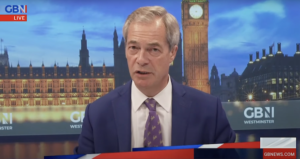BPS WELCOMES EXPANSION OF PSYCHOLOGICAL WORKFORCE IN NHS PLAN, BUT WARNS MENTAL HEALTH SUPPORT CRUCIAL TO PREVENT EXODUS OF EXISTING STAFF

The government and NHS England has today published its long-awaited £2.4bn, long-term NHS Workforce Plan, and committed to a significant long-term expansion of the psychological workforce, including:
Supporting the growth of training places for clinical psychology, and child and adolescent psychotherapy, by 1,000 each year up to 2028/29
Increasing the number of approved clinician roles across mental health services, so that by 2036/37 there are at least 1,000 more than 22/23
Committing funding to grow the wider psychological professions workforce by training approximately 15,000 more individuals in psychological therapist and practitioner roles.
Sarb Bajwa, chief executive of the British Psychological Society, said:
“We have for many years highlighted the urgent need for a comprehensive mental health workforce plan to address the ongoing crisis in mental health service provision, so we strongly welcome the plan’s commitment to a significant long-term expansion to the psychological workforce. This will not only deliver much-needed improvements to patient care, but address the acute staff shortages that mean mental health services have been unable to keep pace with demand.
“The welcome emphasis on recruiting and training clinical staff across a range of psychological roles will be fundamental to the delivery of preventative and early intervention mental health services that will transform community based provision.”
The workforce plans also outlines new staff wellbeing measures, including the requirement for ICSs to develop and implement plans to invest in occupational health and wellbeing services, aligned with the national Growing Occupational Health and Wellbeing (OHWB) Strategy. While tailored to meet local need, the plan suggests core a core offer for ICSs could include rapid access to mental health and musculoskeletal advice, guidance and treatment services, amongst other measures.
Sarb Bajwa continued:
“We are particularly pleased to see the plan outline a much-needed focus on support for staff wellbeing, and it’s vital that both existing and future staff members can be assured they are working for an employer that cares about and supports them.
“However, this does beg the question as to why the government removed funding for the cost-effective NHS Staff Mental Health and Wellbeing Hubs just three months ago. These vital services for NHS and social care staff have already been successfully delivering the much-needed wellbeing support for staff as described in the plan. It is baffling that a number of well-evaluated existing hubs have been allowed to close, when they could clearly have been part of the solution.
“We also need to be realistic about what can be achieved in the years ahead, and not lose sight of the needs of the existing workforce and what it will take to support their retention. Attracting and then training new cohorts of clinical staff will take several years, meaning existing staff will continue to struggle in conditions that compromise not only their own wellbeing but also patient safety.
“We know staff at all levels are continuing to leave the NHS in droves, many citing unbearable pressure and burnout. Removing funding for the NHS Staff Mental Health and Wellbeing Hubs has always been a false economy, particularly as it leads to a direct increase in costs for agency staff.
“We urge the government to provide ICS’s with a minimum of one year’s further ring-fenced funding for the NHS Staff Mental Health and Wellbeing Hubs, to enable them to continue to support staff while the workforce plan is implemented and funding arrangements finalised.”




